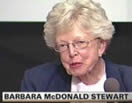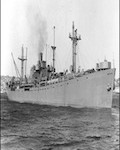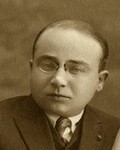The Rev. Waitstill and Martha Sharp, a Unitarian couple from Massachusetts, traveled to Europe in the 1930s to rescue Jews and other refugees from the Nazis. Working in German-occupied Czechoslovakia in 1939, the Sharps helped Jewish refugees and anti-Nazi activists escape from the Gestapo. In on instance, they saved a Czech member of parliament by smuggling him through a hospital morgue in a body bag. In 1940-1941, the Sharps became a key part of the underground rescue network set up in Vichy France by the American journalist Varian Fry.
Fry’s mission was to arrange the illegal emigration of cultural, literary, and political figures–most of them Jews–who faced arrest or worse at the hands of the pro-Nazi Vichy regime. He was closely assisted by Hiram Bingham III, a vice-consul at the U.S. consulate in Marseilles who assisted refugees in defiance of his superiors. Fry, Bingham, and the other members of their network smuggled most of the refugees across the Pyrenees mountains into neighboring Spain, and from there into neutral Portugal. The Sharps, who were stationed in Lisbon for part of this time, arranged for the escapees to travel to the United States or South America.
Fry and Bingham smuggled novelist Lion Feuchtwanger out of a French internment camp by disguising him in women’s clothes and then hiding him in Bingham’s house until they could get him and his wife to the Spanish border. There, with Rev. Sharp’s help, they were taken across the Pyrenees to safety. The operation was nearly torpedoed when, at the customs line to enter Portugal, an American journalist spotted the famous novelist and called out, “Mr. Feuchtwanger!” Sharp pulled her aside and silenced her in the nick of time. “I just wanted a scoop,” the reporter weakly explained.
Sources: Subak, Rescue and Flight, pp.28-44; Marino, A Quiet American, pp.185-186.











